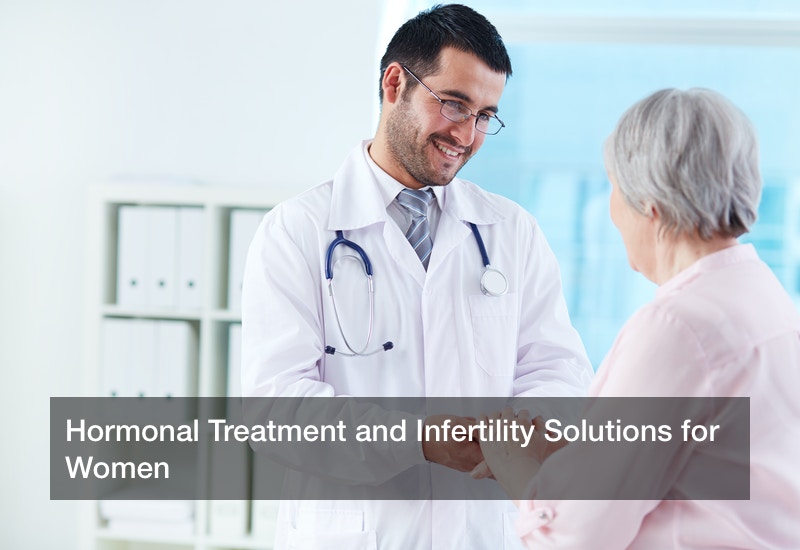
Women’s health covers a number of areas, and two of them may include anti aging therapy such as hormone therapy or menopause solutions, and infertility solutions. A woman who is having trouble conceiving a child may visit these infertility clinics for testing, exams, and one or more fertility solutions such as in vitro fertilization, medication, or even therapy. Meanwhile, post-menopausal women may choose to undergo anti aging therapy such as hormone replacement therapy when their estrogen and other hormonal levels naturally decrease. A woman in her 50s or so may experience some undesirable effects of menopause, and she may turn to anti aging therapy to address this. What is there to know about anti aging therapy and visiting fertility clinics in the United States today?
Hormonal Replacement
Most women go through menopause, but there are a few misconceptions about this natural process. For one, a woman may experience menopause earlier or later than others, and while the mean age of menopause is 51, some women experience it as young as their 30s or as late as their 60s. In general, however, women may experience it anywhere from age 40 to 58. It may also be noted that menopause itself is in fact only a 24-hour-long process, and everything after that is the most-menopausal stage. General symptoms of menopause may include a decrease in sex hormones such as estrogen and others, infertility, and changes in the brain. A woman’s mind and brain will be changed during menopause, and alter her behavior and her interests.
Women and men alike have different hormones and neural connections in their brains, related to not only sexual desire but also how they behave and perceive others and the world around them. For women’s part, these natural, chemical tendencies include enhanced social prowess such as ease with reading other people’s faces and their tones of voice to read emotional content. Women have a hormone-driven tendency to care about their community as a whole and enhance and maintain social bonds for mutual benefit. Of course, every person is different, and a person’s behavior is not dictated entirely by their hormonal makeup. All the same, women and men have natural tendencies and affinities related to their respective sexes that may alter their behavior.
Where does menopause fit into all this? A woman naturally has a high level of estrogen, but once menopause begins, her levels of estrogen will drop. And in the few years right before menopause, a woman’s menstrual cycle may slow down and become irregular, a surefire sign that menopause is due to start soon. A woman may experience both mental and physical changes during and after menopause, which may include sleep difficulty, hot flashes, and changes in mood and behavior. In fact, as a woman’s estrogen levels drop, she may lose some of her natural affinities that come with high estrogen levels. This includes the primal drive to read other people’s emotional content and maintaining social bonds and connections. These behaviors aren’t lost entirely, but menopause will certainly impact them to some degree.
Women often report greatly disliking the effects of menopause, and may opt for anti aging therapy such as hormonal treatment. Such treatments have become quite popular in recent years, and often prove effective. An interested client may have her estrogen levels medically boosted, which may mitigate many of the undesirable effects of menopause. It may be noted that such anti aging therapy may also come with side effects such as increased blood pressure and higher chances of developing breast cancer. This process is safe for women in their 50s, but all the same, a patient is urged to get screening and testing done, just in case those side effects occur. A woman’s chances of developing breast cancer are affected by a number of factors, including estrogen levels. More estrogen leads to higher chances of breast cancer. Not only may anti aging therapy raise chances of breast cancer, but obesity may do the same. In a post-menopausal woman, fat tissue is her largest source of estrogen, and a lot of it means higher breast cancer risks. In all of these cases, visiting screening clinics and getting mammography or breast biopsies done is a safe route to take for these women.
